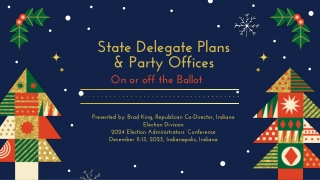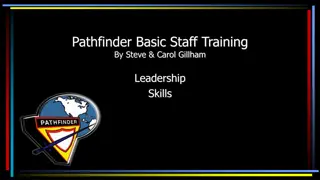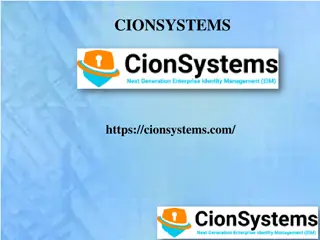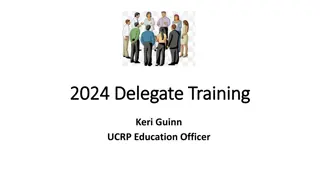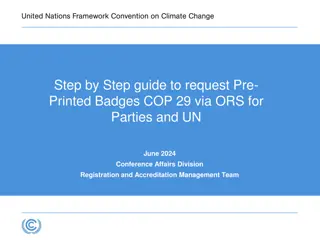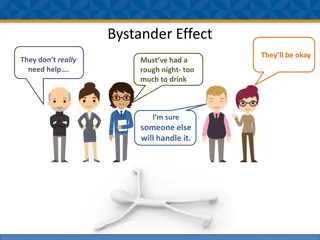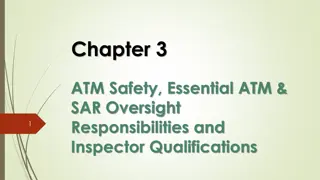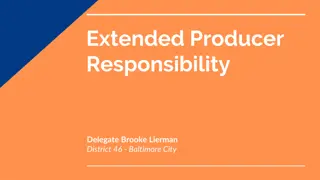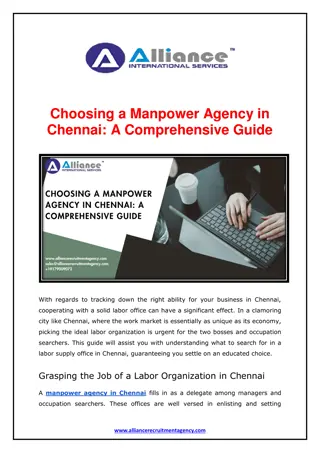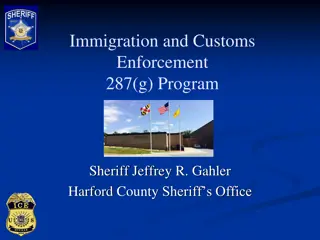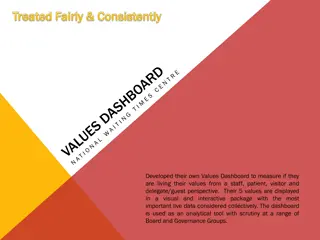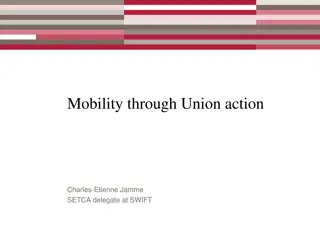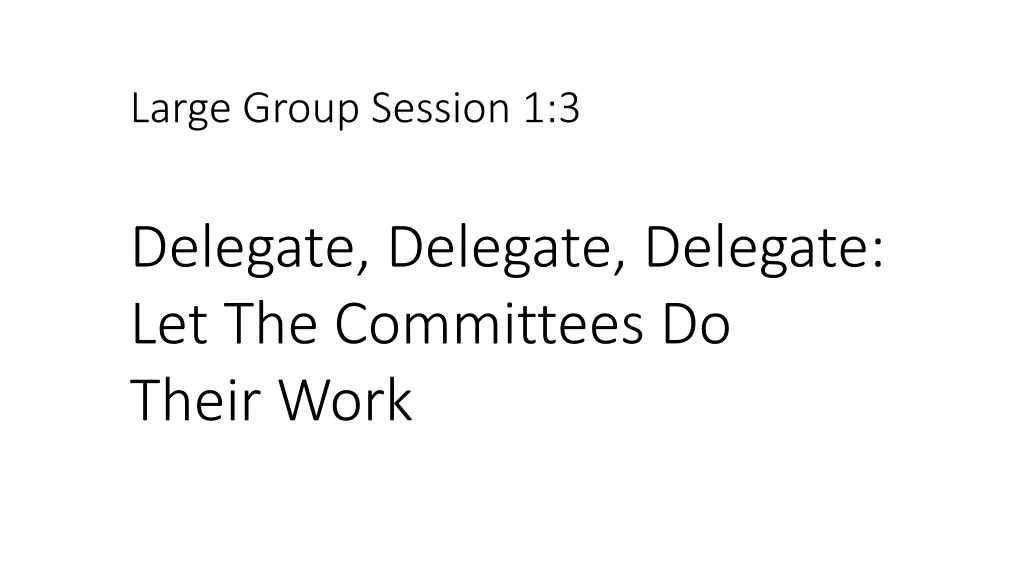
Rethinking Governance and Organized Religion in Congregational Leadership
Explore the evolution of governance, relational leadership, and organized religion within congregations post-World War II. Delve into how congregations organize themselves, the resistance to change, and the importance of adapting to meet members' needs while preserving tradition.
Download Presentation

Please find below an Image/Link to download the presentation.
The content on the website is provided AS IS for your information and personal use only. It may not be sold, licensed, or shared on other websites without obtaining consent from the author. If you encounter any issues during the download, it is possible that the publisher has removed the file from their server.
You are allowed to download the files provided on this website for personal or commercial use, subject to the condition that they are used lawfully. All files are the property of their respective owners.
The content on the website is provided AS IS for your information and personal use only. It may not be sold, licensed, or shared on other websites without obtaining consent from the author.
E N D
Presentation Transcript
Large Group Session 1:3 Delegate, Delegate, Delegate: Let The Committees Do Their Work
Rethinking Governance Relational Leadership
Organized Religion Feels like an oxymoron Religion transforms/changes people Religion is no friend to the status quo Institutions resist change Institutions preserve traditions Congregational leaders need to do both
World War II Changed Everything
Weve always done it this way! We ve always done it this way! Developed after WWII Why? Councils/Committees/Meetings/Minutes Designed to resist change Designed to preserve tradition Yet almost nothing remains of that 1950s world except our way of organizing!
1950 Returning Vets & families flocked into churches Created structures to guarantee stability Denominational loyalty Huge volunteer work force housewives Larger buildings/full time clergy & staff institutional church organized religion
How Congregations Organize Across American Denominations! Paid Pastors Elected Councils Congregational Meetings Committees & Committee Meetings
Basic Assumptions Congregation s purpose is to meet members needs It should run itself without much meddling by churchwide/synod Pastors should defer to laity Laity speak their most authoritative word through voting
We offer with joy and thanksgiving what you have first given us our selves, our time, and our possessions, signs of your gracious love. Receive them for the sake of him who offered himself for us. Jesus Christ our Lord. Amen.
Three Philosophical Approaches Laissez-faire Abdicate Relational Delegate Authoritarian Mandate
Proclamation People Pastoral Care Facilities Programs Finances Mission
Three Ways to Organize Council Centered Committee Centered Staff Centered All variations on the same theme of what was created after WWII
Officers & At Large Clergy Committee Committee Chair Chair Council Chair Chair Chair Committee Committee Committee
Clergy Officers & At Large Committee Committee Chair Chair Council Chair Chair Committee Committee Chair Chair Chair Committee Committee Committee
Council Clergy Committee Committee Committee Committee Committee
Council Clergy Finance Committee Property Committee Committee
Council Clergy Finance Committee Property Committee Committee
Council Clergy Finance Committee Property Staff Personnel Committee
Clergy Council Committee Staff Staff Committee Committee Committee Committee
Roles of the Congregation Clergy Governance Ministry Council President Staff & Council Ministry Teams discerners governors ministers Congregation
Committees and Teams Staff Governance Ministry Council Committees (very few) Ministry Teams (unlimited) discerners governors ministers Congregation
Council & Governance Council & Governance Councils have control over the congregation s people and material resources Razor sharp focus on the mission Major choices about goals and strategies Deciding who is responsible for implementing them Delegate, delegate, delegate! Hold people accountable for their performance
Council Meeting Agenda Council Meeting Agenda Prayer/Study/Ritual Learning Together Minutes/Reports/Permission & Approval Scheduled Evaluations Priorities for the coming year Changes in our ministry or operation
Ministry Ministry What the congregation does, inside and out, to carry out the mission Teaching, preaching, sweeping, bill paying, visiting, singing you get the picture Includes the pastor, any paid staff, volunteers of all ages Making choices about money, time & space
Governance or Ministry? Governance produces minutes, policies, mission statements, goals and strategic planning documents Ministry brings into being worship services, study groups, mission trips, service projects, mowed lawns and happy children
Governance Effective governance requires diverse, representative groups of people who sit around tables having orderly discussion. Elected. Effective governance is formal enough so that it is clear what has been approved. Minutes are taken! It attracts those who are verbal, patient, and at ease with abstract thinking.
Ministry Usually unrepresentative excludes those not passionate about the specific task. Needs a leader who knows the task and can train and supervise the team to achieve a specific goal. Not elected! Selected for their passion and the specific gifts they bring to the task. Passion, problem-solving skills and a preference for action over talk are needed.
Similarities between Governance & Ministry Similarities between Governance & Ministry Faith and values Prayer and study Decisions on how to spend money Decisions on how to use human resources Driven by mission

